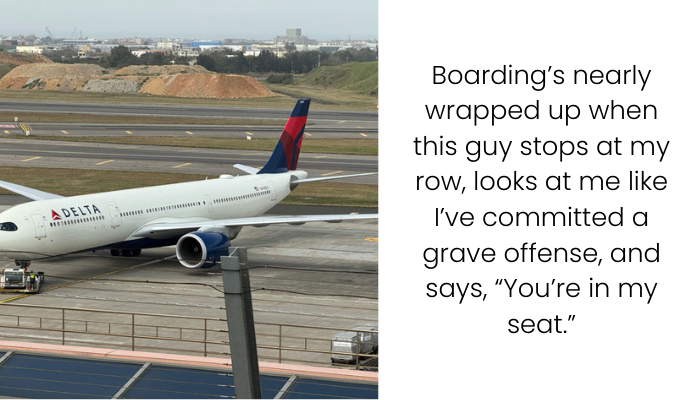Airline Passenger Tries to Pull Rank with Platinum Status, Gets Shut Down by Flight Attendant
A recent inflight encounter from Schiphol to Minneapolis revealed how far some frequent flyers are willing to go to claim preferred seating—without proper booking. During boarding, a man claiming Platinum status tried to take over seat 27A, already occupied by another passenger with a confirmed assignment. Insisting that he “always sits here” and that the airline “usually handles it,” he demanded the rightful occupant give up the bulkhead window seat, despite being assigned 34C.
Unmoved, the seated passenger stood firm, pointing out the obvious: seat assignments are based on booking, not loyalty tiers. When the entitled traveler escalated the situation to a flight attendant, expecting preferential treatment, he was swiftly shut down. The crew member reaffirmed that frequent flyer status does not override a valid boarding pass, forcing the man to retreat to his actual seat with a bruised ego and a lesson in humility.
Modern air travel is challenging enough, but for this guy, his flight got off to an unnecessarily shaky start
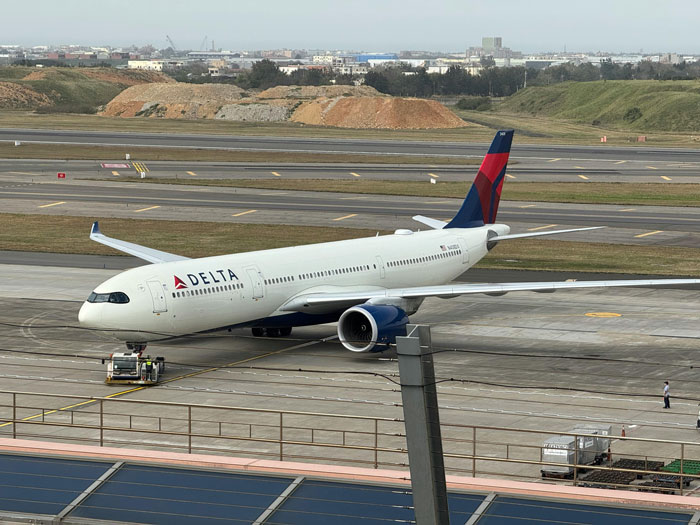
Already in his assigned seat, he was approached by another passenger who promptly demanded he switch places with him
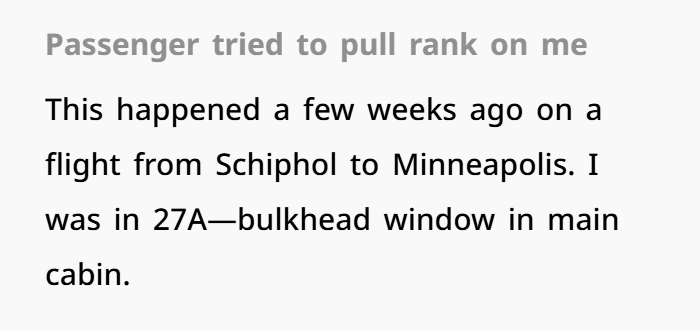
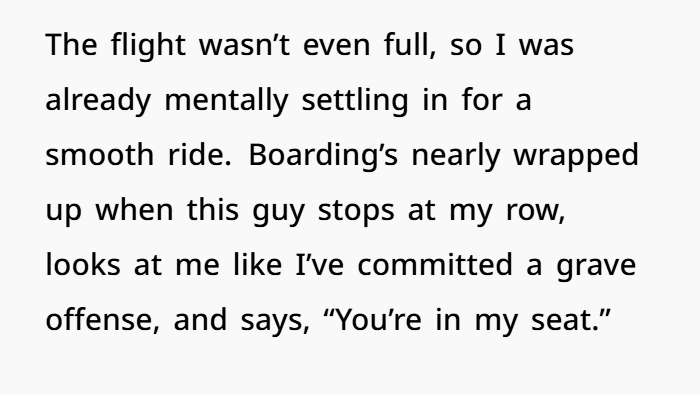
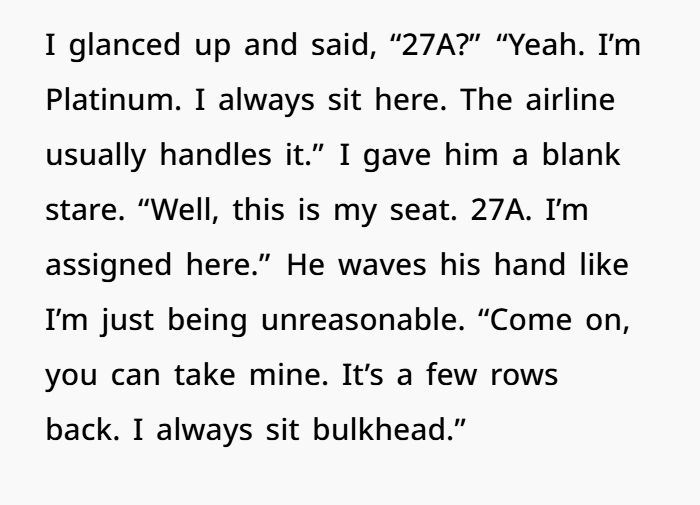
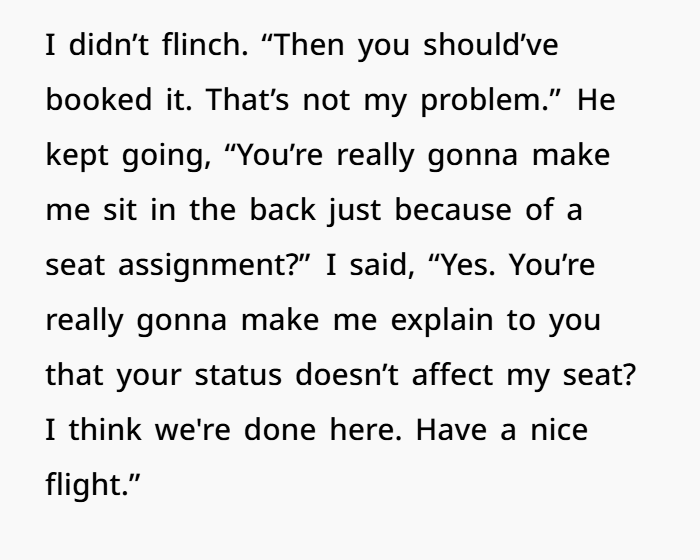
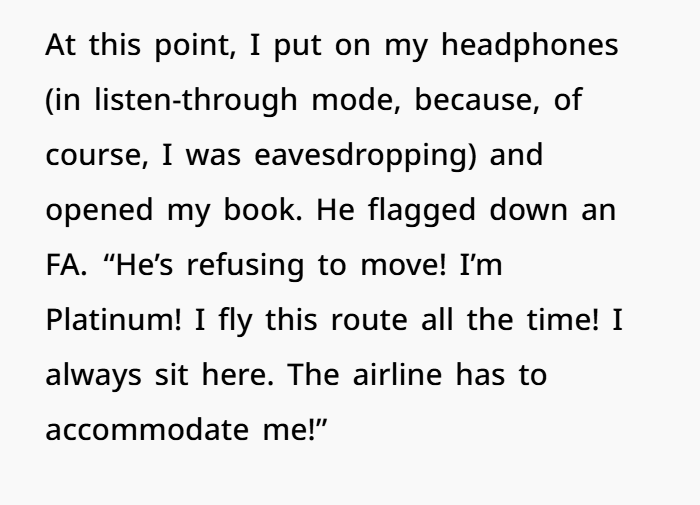

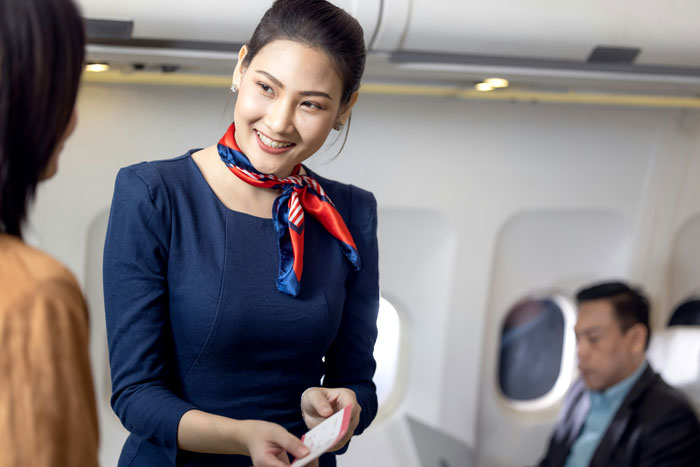

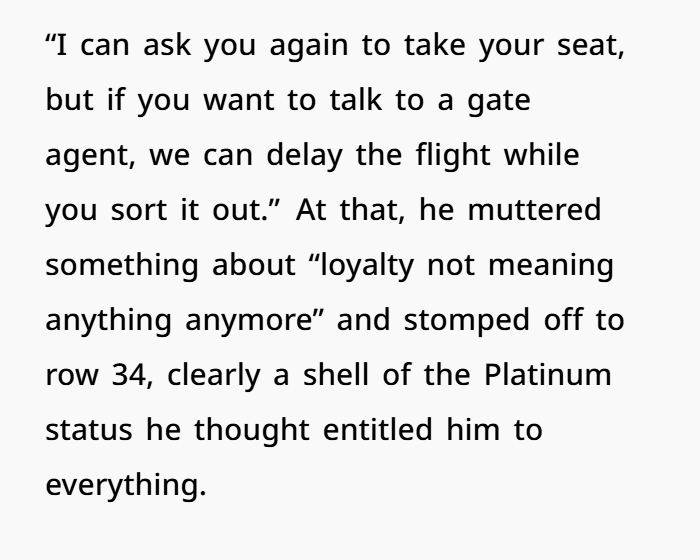
The Entitlement of Status and the Sanctity of Assigned Seats
In the intricate dance of air travel, where personal space is measured in inches and the hierarchy of loyalty programs often dictates perks, the sanctity of an assigned seat remains a cornerstone of passenger rights. The incident involving a Platinum status passenger demanding a seat already occupied by another traveler underscores a recurring tension in the skies: the perceived privileges of frequent flyers versus the equitable enforcement of airline policies.
The Allure and Limits of Frequent Flyer Status

Frequent flyer programs are designed to reward loyalty, offering benefits such as priority boarding, complimentary upgrades, and access to preferred seating. Delta Air Lines, for instance, provides Medallion Members with access to Preferred Seats, including bulkhead and exit row options, subject to availability Delta. However, these perks do not override the fundamental principle that a seat assignment, once confirmed, is a passenger’s rightful claim.
The Incident: A Clash of Expectations
On a flight from Schiphol to Minneapolis, a passenger settled into seat 27A, a bulkhead window seat, only to be confronted by a Platinum status traveler asserting that the seat was customarily his. Despite the latter’s insistence and appeal to his frequent flyer status, the seated passenger stood firm, referencing his assigned seat. The situation escalated until a flight attendant intervened, reaffirming the seat assignment and directing the Platinum passenger to his designated seat in row 34.
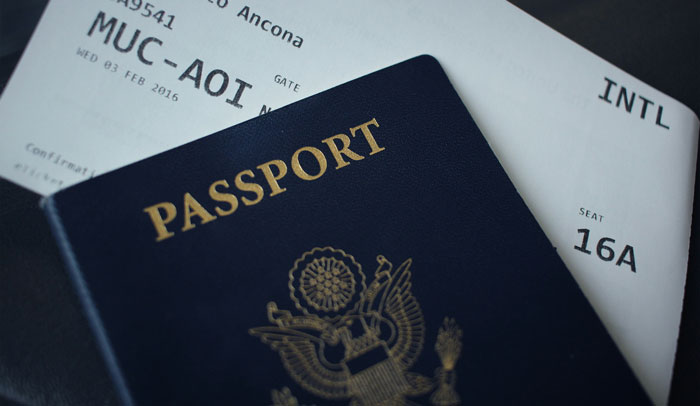
This encounter highlights a critical aspect of air travel: while loyalty programs offer certain privileges, they do not entitle members to override established seat assignments. Airlines maintain policies to ensure fairness and order, and these policies are upheld by flight crews to maintain a harmonious travel environment.
The Role of Flight Attendants: Upholding Policy and Order
Flight attendants are tasked with enforcing airline policies and ensuring passenger compliance. In this scenario, the flight attendant’s response was measured and aligned with standard procedures, emphasizing that frequent flyer status does not supersede seat assignments. This approach is consistent with industry practices, where seat assignments are respected to prevent conflicts and ensure a smooth boarding process.
The Broader Implications: Respecting Boundaries and Policies
This incident serves as a microcosm of a larger issue in air travel: the balance between individual expectations and collective order. While frequent flyer programs are valuable for rewarding loyalty, they operate within a framework that prioritizes fairness and adherence to established procedures. Passengers, regardless of status, are expected to respect seat assignments and the authority of flight crews.
Some comments






Navigating the Skies with Respect and Understanding
The skies are shared spaces, and harmonious travel depends on mutual respect and adherence to policies. While frequent flyer status offers benefits, it does not grant carte blanche to override seat assignments or challenge the authority of flight crews. As air travel continues to evolve, maintaining this balance will be essential for ensuring a positive experience for all passengers.

